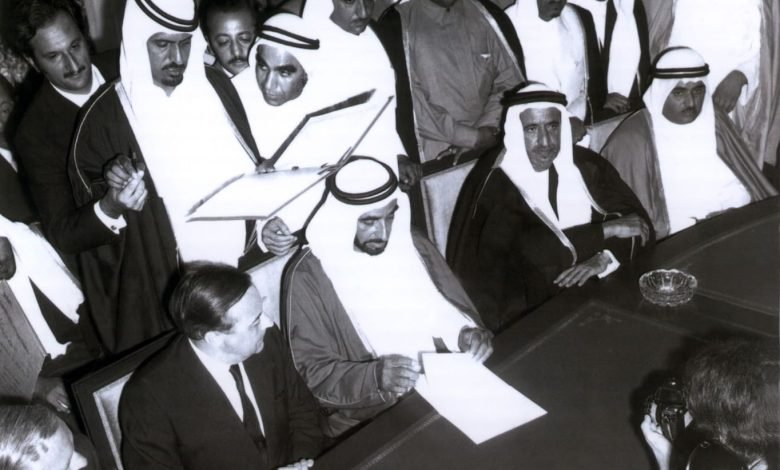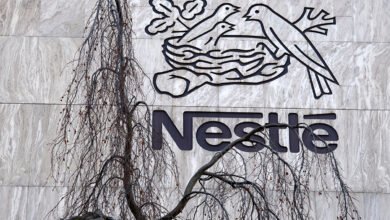
Historic Union Pledge Day: UAE Marks 54 Years of Unity, Progress
UAE celebrates its incredible trip from a federation to global leadership on Union Pledge Day. The nation remembers July 18, 1971, as a defining moment when the founding fathers signed the declaration of the Union and the UAE Constitution. The historic gathering witnessed these leaders choosing the name “United Arab Emirates,” which paved the way for the country’s formal unification on December 2, 1971.
Union Pledge Day reminds everyone of UAE’s remarkable changes in the last 54 years. The day pays tribute to the founding fathers’ visionary leadership, with special recognition to the late Sheik Zayed bin Sultan Al Nahyan. His wisdom created the foundations for a unified and thriving nation. This crucial day in Emirates’ history celebrates both the dubai union’s beginnings and emphasizes the emirates vision. This vision has steered the country from a modest federation to become a leader in economic diversification, state-of-the-art development, and humanitarian outreach.
UAE Signs Union Declaration in 1971
A historic pledge changed the Trucial States into a unified nation on July 18, 1971, at Dubai’s Guest Palace. Sheik Zayed bin Sultan Al Nahyan had built strong relationships with neighboring emirates after the British announced their withdrawal from the Arabian Gulf.
The federation’s story began in February 1968. Sheik Zayed and Sheik Rashid bin Saeed Al Maktoum of Dubai met and agreed to unite their emirates. They extended invitations to other emirates to join this union. Their careful planning and diplomatic talks led to success. Six of the seven Trucial States – Abu Dhabi, Dubai, Sharjah, Ajman, Umm Al Quwain, and Fujairah – came together for a momentous declaration.
The gathering produced a historic announcement: “The Supreme Council felicitates the people of the United Arab Emirates, as well as the Arab people, and our friends around the world, and declares the United Arab Emirates as an independent sovereign state being a part of the Arab World”. The emirates adopted a provisional constitution and named Abu Dhabi as the temporary capital.
The union became official on December 2, 1971, at 10:00 am from Union House (now Etihad Museum) in Jumeirah, Dubai. The emirates unanimously elected Sheik Zayed as their first President and Sheik Rashid as Vice-President. This announcement marked the power transfer from British authorities to the new federation.
The United States recognized the United Arab Emirates just one day after its independence. The seventh emirate, Ras Al Khaimah, joined the federation later on February 10, 1972. The period’s precious artifacts include meeting minutes, early drafts of the Federal Constitution, and political letters between the Rulers.
The National Library and Archives keeps this legacy alive. Union Pledge Day celebrations help share these historical documents with new generations, keeping the dubai union story vibrant in the emirates’ future vision.
Sheik Zayed Leads Vision for a Unified Nation
Sheik Zayed bin Sultan Al Nahyan built the UAE’s unity with a philosophical vision that surpassed simple political union. His appointment as Abu Dhabi’s Ruler in August 1966 led him to champion federation right away. “In harmony and in some sort of federation, we could follow the example of other developing countries”. His governance philosophy became the life-blood that shaped the UAE’s remarkable development.
Visionary thinking and deep commitment to consensus marked Sheik Zayed’s leadership style. The concept of federation was new to the region, yet he managed to keep unwavering faith in its potential, rooted in shared heritage and common bonds. His enthusiasm for unity combined with his skill at building agreement among fellow rulers won widespread support.
The traditional Arabian Bedouin concept of majlis (council) shaped Sheik Zayed’s core governance approach. Leaders held open-house discussions where anyone could share their views. He gave this practice official status by creating the National Consultative Council in 1970 and the Federal National Council in 1971. “Consensus, debate and direct democracy” became central to the UAE’s political framework.
“Money is of no value unless it is used for the benefit of the people” – this belief guided Sheik Zayed’s actions consistently. The Trucial States Development Fund received Abu Dhabi’s oil wealth even before the UAE existed. His leadership focused on:
- Environmentally responsible growth that met current needs while protecting future generations
- Education, healthcare, agriculture, and infrastructure investments
- Reliable defense and food security through dedicated government departments
Sheik Zayed applied tolerance and consensus principles throughout his tenure. He fostered cooperation across the Arabian Gulf region and solved conflicts through dialog. Wisdom, moderation, and support for justice shaped the UAE’s balanced foreign policy, both regionally and globally.
Sheik Zayed reflected with pride on the federation’s twenty-fifth anniversary: “Our accomplishments have exceeded all our expectations… and confirm that there is nothing that cannot be achieved for the benefit of the people if we have the firm determination and sincere intentions”.
Sheik Mohamed Expands UAE’s Global Role
Sheik Mohamed bin Zayed Al Nahyan’s leadership has expanded UAE’s global influence by a lot. He became President in 2022 and built upon Sheik Zayed’s foundation. His vision has taken the emirates to new heights through strategic collaborations and diplomatic initiatives.
UAE’s international relations show both continuity and development under Sheik Mohamed. The nation has strengthened its position as a key mediator in regional conflicts through balanced diplomacy. On top of that, it has improved its presence in international organizations and secured a non-permanent seat on the UN Security Council for the 2022-2023 term.
Sheik Mohamed’s strategy focuses on economic diversification, particularly in:
- Advanced technology and artificial intelligence
- Space exploration, including the successful Hope Mars Mission
- Renewable energy investments, highlighted by innovative solar projects
- Healthcare and biotechnology development
Sheik Mohamed’s guidance has established UAE as a humanitarian leader. The nation stands among the world’s top donors of development assistance relative to gross national income. It provides vital support to countries facing natural disasters, conflicts, or health crises.
Sheik Mohamed’s global agenda prioritizes climate action. His steadfast dedication to environmental sustainability led to UAE hosting COP28 in 2023, where world leaders gathered to address climate challenges.
UAE serves as a cultural bridge between East and West. The Louver Abu Dhabi symbolizes the commitment to encourage cross-cultural understanding. This represents just one aspect of a broader cultural diplomacy strategy.
Union Pledge Day celebrates UAE’s experience from federation to global leadership. Sheik Mohamed has reshaped the scene by transforming the dubai union from a regional player into a respected global voice. His pragmatic foreign policy has secured strategic collaborations with major world powers while retaining UAE’s sovereignty and independent decision-making.
Sheik Mohamed’s leadership positions UAE at the intersection of tradition and state-of-the-art technology. The emirates vision continues to grow as it honors the union pledge day legacy and faces future challenges with confidence.
The United Arab Emirates has grown from a young federation into a global powerhouse over the past 54 years. Union Pledge Day shows the extraordinary vision of the founding fathers. Sheik Zayed bin Sultan Al Nahyan knew that unity would bring strength and prosperity to the emirates. Their historic declaration on July 18, 1971, built the foundations for one of the most successful federations in modern history.
The trip from that crucial gathering in Dubai to today reflects a steadfast dedication to development, state-of-the-art solutions, and humanitarian values. Sheik Zayed believed that “money is of no value unless it is used for the benefit of the people.” This wisdom continues to shape national policies that ensure economic growth benefits both citizens and residents. These principles, combined with the traditional consultative approach of the majlis system, created a governance model that balances progress with cultural heritage.
Sheik Mohamed bin Zayed Al Nahyan has built upon this legacy. He positioned the UAE as a key diplomatic player globally. His leadership has taken the nation into new frontiers—from space exploration to renewable energy. The foundational values established during federation remain strong. The UAE now acts as both a mediator in regional conflicts and a humanitarian leader during global crises.
Union Pledge Day symbolizes more than just a historical milestone. It represents an ongoing commitment to the ideals that created the nation. The changes over five decades prove how visionary leadership and strategic planning can lift a young federation into a respected global influence. We have a long way to go, but we can build on this progress in this ever-changing world. The UAE’s ability to adapt while honoring its founding principles points to a promising future.
The UAE’s story inspires us all. It reminds us that unity, determination, and forward-thinking leadership can overcome huge obstacles. Seven distinct emirates came together to form one cohesive nation that continues to exceed expectations and redefine possibilities for future generations.






